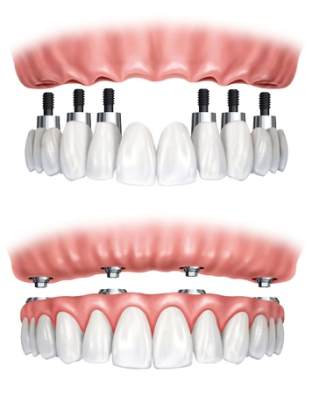What is a Dental Implant?
A dental implant is an artificial replacement for a tooth root, usually made from titanium. There are many different implant systems available and at Dental square we competently use and deliver highly reliable and predictable implant treatment with life time warranty.
An implant is placed into the jaw bone in order to establish contact with the surrounding bone by means of which there will be further bone growth onto the implant, gaining the stability required to support crowns, bridges or over dentures.
Are you eligible for dental implants?
A good, healthy mouth is key to Dental implant treatment, as we at Dental Square, want you to have definitive predictable treatment. Adults with good oral and general health qualify to have implant treatment with ease as they can only be used once the jawbone has stopped growing and so generally are not used with younger patients.
Habits such as smoking can increase the number of problems associated with initial healing and might be bad for the long-term health of gum and bone surrounding each implant. Medical conditions can be of a concern too.
However, each case is different and if you do have any medical problems then speak to us about it during your consultation appointment. It is only in some circumstances that health problems prevent the use of dental implants altogether. There can be relative contra indications which the Dental Surgeon can deal with to give you implant based fixed solutions for your missing teeth.
Consultation Visits
At your initial consultation we will assess the possibilities of providing implant treatment. At this interaction you may have questions concerning your medical history and its’ relevance to implant treatment both long term and short term. A complete examination of your mouth is carried out to make a dental diagnosis of the existing dentition. Generally, x-rays, dental scans, photographs and impressions of the mouth will be taken, so that these can be examined after your visit.
These x-rays, dental scans and models will be used to arrive at a detailed treatment plan. The optimal position for an implant, the number of implants needed and the need for bone grafting will be established.
At this first appointment we try to educate you on the importance of good oral hygiene and propose the treatment plan with prerequisites for oral prophylaxis etc. You will be made aware of which problems are urgent, and what treatment is required to stabilize any gum- or tooth-related problems. An outline of how your particular implant treatment might be approached will be briefed to summarize.
What should you know before you start treatment?
As a general practice you would be given a summary of your proposed treatment plan either by means of a thorough diagnostic appointment with your Dental Surgeon, or as written correspondence via email. This treatment proposal includes an overview of the anticipated treatment stages and give you some idea of how long treatment is likely to take, how many implants are required, the prosthesis in plan, etc. There may be other issues specific to your case such as the need for bone grafting, etc. and these would be dealt with accordingly. You would also have an estimated costing prior to treatment to plan your finances. At Dental Square we respect your individual need and support you with solutions to suit your budget.
How long does treatment take?
For routine cases, from the time of implant placement to the time of placing the first tooth/teeth, treatment times can vary between six weeks and six months. The availability of better quality bone can be used to decrease treatment time, with immediate loading protocols, meaning you will have your implant and crown delivered with one to three days. More time and care must be taken with poorer bone, which can therefore extend treatment times than normal.
Outline Of The Implant Treatment Process
In general, the implant treatment procedure involves several stages that takes place over a period of time from three to six months, depending on the protocol under taken which is subjective.

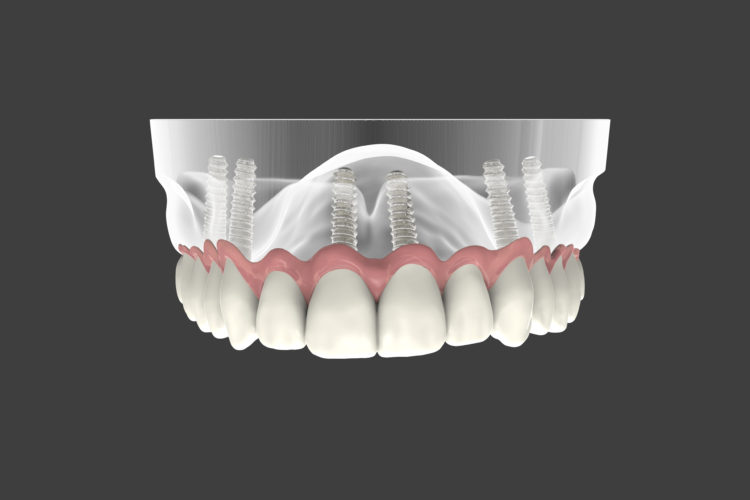
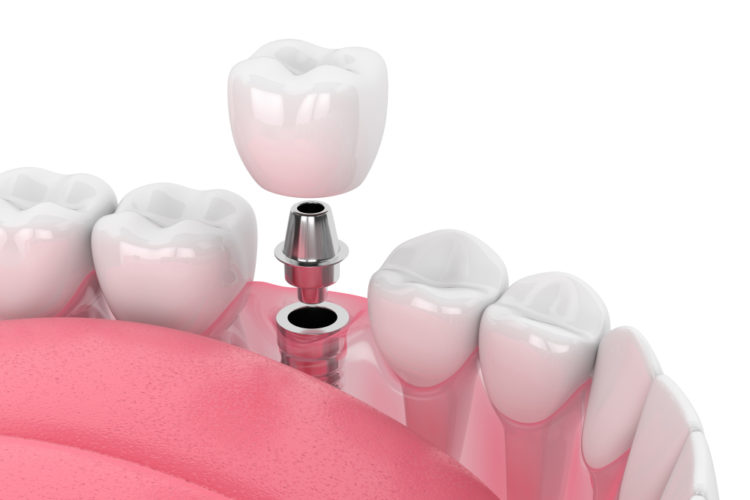
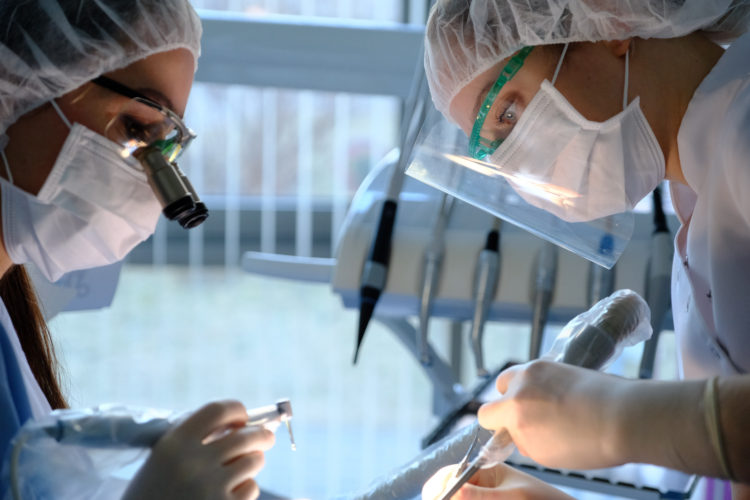
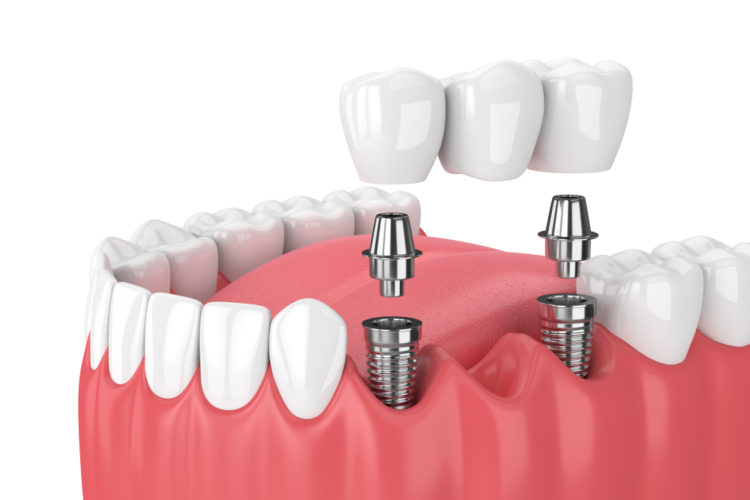
1
Consultation for Implant treatment:
At the initial consultation, following thorough examination and discussion of all possible alternatives, you will be assessed on the possibility of providing implant treatment. Photographs, X-rays/scans will be taken and models of the teeth prepared.
2
Implant Placement:
Implant placement is a relatively simple minor surgical procedure that can be performed under sterile conditions in a dental surgery. The treatment is performed under local anesthesia with sedation if required. If, during assessment, the underlying bone is deemed deficient, a number of options are available for bone regeneration. Bone regeneration is carried out prior to or at the same time as implant placement depending on requirements.
3
The Restorative Phase:
As integration is done, the implants can be restored to function. These will be definitive restorations ranging from a single crown to a full arch bridge. The restorations can be of a material of choice depending on your aesthetic need and type of restoration.
4
Healing period:
Implants can take from six weeks to six months to integrate with the patient’s bone. During this integration period, temporary dentures or temporary crown/ bridge can be worn as appropriate. In some cases, temporary teeth can be fixed to the implants while they integrate in a process known as ‘immediate loading’, which is subjective again.
5
Follow up & Maintenance:
Following completion of implant treatment, the patient must follow the maintenance protocol proposed. You need to regularly and thoroughly clean the new teeth (restorations) as instructed. Both maintenance of the restorations and the natural teeth are equally important for the life of your implants. A review protocol will be proposed to you at the end of treatment and your follow up visits to Dental Square is essential so that the health of the soft tissue, bone levels and the integrity of the restoration can be reviewed.
How long will implants last?
Well-maintained implants placed into adequate bone can be expected to last for many years and possibly for your lifetime. However, just as you would expect conventional crowns, bridges and fillings to need occasional repairs or replacements, your implant-supported teeth may also have similar maintenance requirements over the years.
Once the implants and surrounding soft tissues are seen to be healthy, and the new teeth comfortable and correctly adjusted, it is the quality of your personal attention to oral hygiene and willingness to attend regular maintenance reviews that will have most influence on how long they will last.
When poorly cared for, implants will develop calculus and plaque, just as it would do on neglected natural teeth. These deposits can lead to gum infection, which in turn costs the longevity of your implant. It could probably be said that implants will last as long as natural teeth.
How many teeth can be supported by implants?
A single missing tooth needs just one implant to provide replacement. However, Two or more missing teeth do not necessarily need one implant per tooth. The restoration can be in the form of an implant bridge thus reducing the number of implants needed. The exact number of implants will depend upon the quality and volume of bone at each potential implant site.
There would be a requirement for over engineering, in some cases. Patients who have a habit of clenching or grinding (bruxing) their teeth may be at risk of overloading their implants. For most people bruxism occurs during sleep, which is why they are generally not aware of it. Heavily worn or flattened teeth, chipped enamel edges and/or regularly breaking pieces of heavily filled teeth are the most common clinical signs of bruxism. The effects of bruxism need to be considered during treatment planning and can be compensated for by placing additional implants, selecting appropriate restorative materials and providing a night time bite guard to protect the new teeth. This will be discussed in your initial consultation and detailed in your treatment plan.
All on Four
All on 4 dental implants is a treatment which allows a whole set of new teeth to be supported by just 4 implants. This concept was developed by Dr Paulo Malo and practiced globally. In this concept , 4 implants are positioned at precise angles and special connections are made to support and stabilize your implant bridge.
How is All on 4 Different to Normal Dental Implant Treatment?
All on 4 dental implants are unlike traditional implants because 4 implants are used to sustain a whole arch, when usually between 6 and 10 implants are needed to maintain an arch. All on 4 dental implants are able to sustain an arch because of the angles the implants are positioned at, with the back implants positioned at an angle rather than straight at 90-degrees, which helps to distribute the forces, while spreading the teeth to the back.
All on 4 is also a solution provided for those with poor bne levels as an alternative to bone grafting and implant placement
All on Four Procedure
During the consultation visit, it will be assessed if you can have All on 4 dental implants. If the treatment mode suits you, we will explain how the treatment works and arrange an appointment to place the implants.
The procedure of placing the implants include a special surgical technique in placing implants at specific angles. This placement is designed to provide better support and anchorage and facilitate the healing process. Abutments will then be attached at time of surgery. Abutments are small devices that connect the implants to the new restorations. Once the abutments are secured, the temporary restorations will be attached.
You will need to attend regular appointments, so that the progress of the treatment can be assessed time to time. After around 4 to 6 months the implants will have healed and integrated into the bone fully and your permanent restorations can be fitted.
